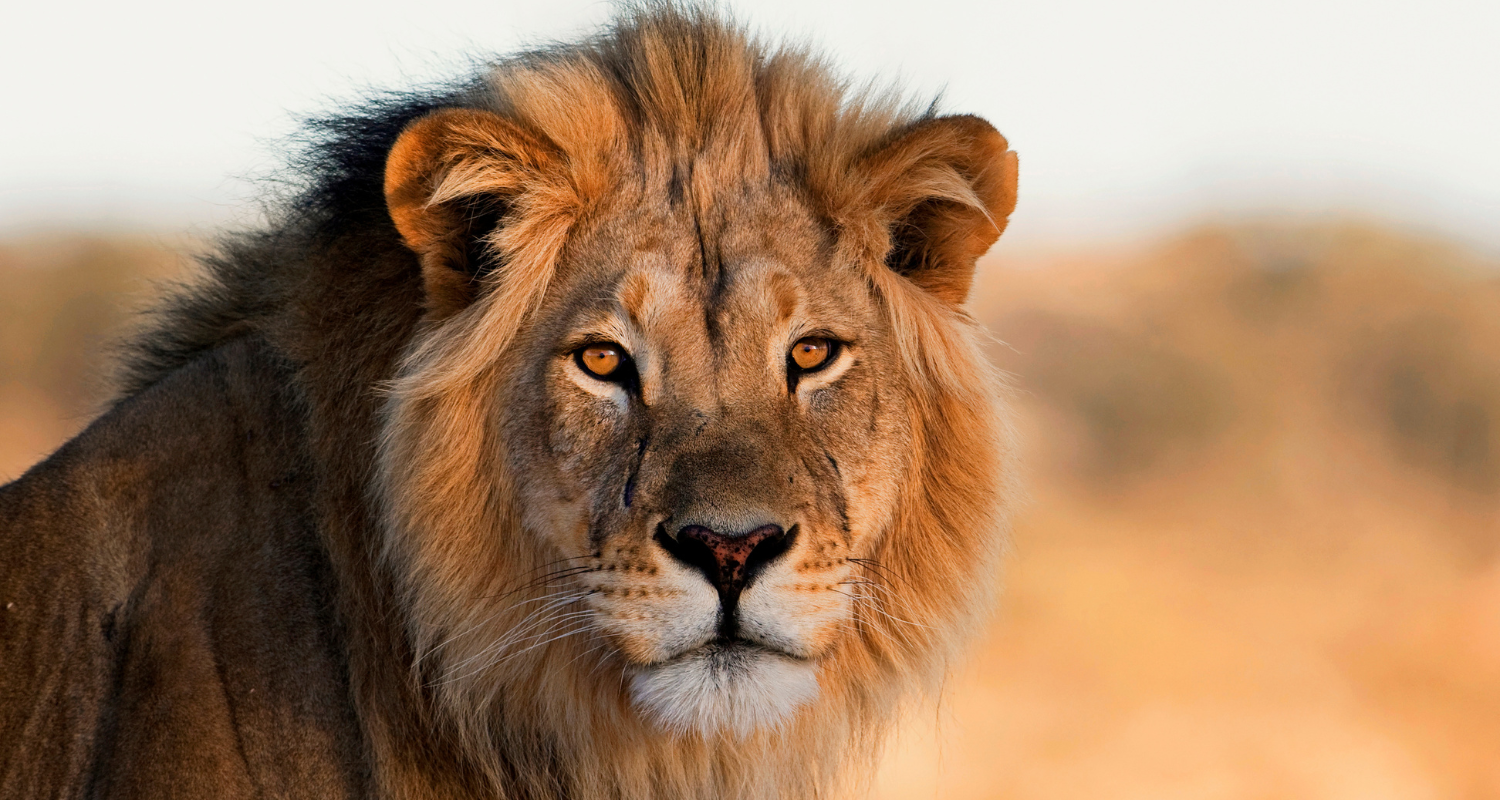
Lion Symbolism and Meaning as Spirit, Totem, and Power Animal
The lion, often referred to as the "king of the jungle," holds a prominent place in the symbolism and spiritual meanings across cultures worldwide. The lion symbolizes power, authority, and nobility because of its courage, strength, and regal demeanor.
In ancient Egyptian culture, the lion was associated with the sun god Ra, symbolizing power, ferocity, and dominion over the earthly realm. Sphinxes, with the body of a lion and the head of a human or a ram, were revered as guardians and protectors of sacred sites.
In Greek mythology, the Nemean Lion, with its impenetrable skin, represents an unconquerable foe. The hero Hercules' victory over it symbolizes the triumph of man's intellect over brute strength, underlining the lion's symbolism of courage and bravery.
In African cultures, the lion, as the dominant predator, symbolizes power, bravery, and leadership. The Maasai people, for instance, regard the lion as a symbol of courage, and one's passage into adulthood is marked by a lion hunt.
In Christian symbolism, the lion represents both Jesus Christ, 'the Lion of Judah,' symbolizing power, authority, and kingship, and also the devil, embodying danger and destruction.
On a broader spiritual level, the lion represents courage, power, and leadership. Its majestic roar reminds us of the power of our voices, while its fearless nature challenges us to face our difficulties with courage and determination.
In modern interpretations, the lion symbolizes courage, authority, and leadership. Its image often inspires confidence, bravery, and a sense of purpose.
The lion's symbolism is a compelling portrait of courage, power, and leadership. It invites us to embrace our inner strength, to voice our truths boldly, and to lead with confidence and authority.
With its proud mane and commanding presence, the lion continues to inspire with its profound spiritual symbolism.
In ancient Egyptian culture, the lion was associated with the sun god Ra, symbolizing power, ferocity, and dominion over the earthly realm. Sphinxes, with the body of a lion and the head of a human or a ram, were revered as guardians and protectors of sacred sites.
In Greek mythology, the Nemean Lion, with its impenetrable skin, represents an unconquerable foe. The hero Hercules' victory over it symbolizes the triumph of man's intellect over brute strength, underlining the lion's symbolism of courage and bravery.
In African cultures, the lion, as the dominant predator, symbolizes power, bravery, and leadership. The Maasai people, for instance, regard the lion as a symbol of courage, and one's passage into adulthood is marked by a lion hunt.
In Christian symbolism, the lion represents both Jesus Christ, 'the Lion of Judah,' symbolizing power, authority, and kingship, and also the devil, embodying danger and destruction.
On a broader spiritual level, the lion represents courage, power, and leadership. Its majestic roar reminds us of the power of our voices, while its fearless nature challenges us to face our difficulties with courage and determination.
In modern interpretations, the lion symbolizes courage, authority, and leadership. Its image often inspires confidence, bravery, and a sense of purpose.
The lion's symbolism is a compelling portrait of courage, power, and leadership. It invites us to embrace our inner strength, to voice our truths boldly, and to lead with confidence and authority.
With its proud mane and commanding presence, the lion continues to inspire with its profound spiritual symbolism.

Leave a comment
This site is protected by hCaptcha and the hCaptcha Privacy Policy and Terms of Service apply.